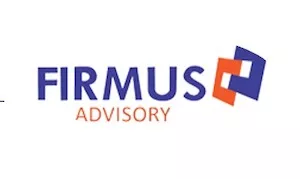- within Corporate/Commercial Law topic(s)
- in European Union
- with readers working within the Business & Consumer Services industries
- within Corporate/Commercial Law topic(s)
- in European Union
- in European Union
- in European Union
- in European Union
- with readers working within the Securities & Investment industries
- within Corporate/Commercial Law, Finance and Banking and Immigration topic(s)
Starting a business in Sierra Leone presents an exciting opportunity for entrepreneurs seeking to tap into the expanding markets of West Africa. The process of establishing a business is relatively simple, typically taking about 2-3 weeks to complete. With clear procedures, affordable costs, and well-defined legal requirements, Sierra Leone offers a favorable environment for both local and international entrepreneurs aiming to establish a presence in the region.
Types of Business Entities in Sierra Leone
The first step in registering a business in Sierra Leone is selecting the appropriate business structure. The country offers various options, each catering to different business needs:
- Limited Liability Company (LLC): A popular choice for small to medium-sized businesses, providing limited liability to shareholders.
- Partnership: A business structure where two or more individuals share ownership and responsibilities.
- Public Limited Company (PLC): Suitable for larger businesses intending to raise capital by offering shares to the public.
- Branch Office: A business extension of an existing company from abroad.
- Company Limited by Guarantee: Often used for non-profit organizations or charities.
- Sole Proprietorship: A business owned and run by one individual. Recommended for locals only.
Steps for Business Registration in Sierra Leone
Starting a business involves several key steps to ensure that your company is legally recognized. Here is a step-by-step breakdown of the registration process:
Step 1 – Check the Uniqueness of Your Business Name
To start the registration process, you must first ensure that your
business name is unique. Conducting a name search at the Office of
the Administrator and Registrar General (OARG) will confirm whether
your chosen name is available or not. The cost of conducting the
name search is SLL 20,000.
Step 2 – Complete the Registration Form
After confirming the availability of your business name, the next
step is to complete the registration forms. There are specific
forms to complete depending on the type of business you want to
register. These forms can be accessed at the OARG or online https://oarg.gov.sl/business-register/. When
registering a business in Sierra Leone, the following are some of
the information and documents needed to complete your business
registration application.
- Business Name
- Registered Office Address
- Tax Identification Number (TIN)
- Business Contacts (Telephone number, email address, and postal address)
- Directors' and Shareholders' Names & Addresses
- Company Secretary & Auditor's Names and Address
- Share Capital (Minimum share capital for a private company is Le 1,000,000)
Step 3: Register with the Registrar of Companies.
In Sierra Leone, the company registration process is done through physical submission of documents at the Office of the Administrator and Registrar General (OARG). While certain forms are available online, the actual submission and verification of your documents happen in person at OARG. You will need to visit the OARG office to complete your registration and provide any necessary documentation. Once your company is successfully registered in Sierra Leone, you will receive several important documents. These include the Certificate of Incorporation, which officially confirms that your business is legally registered. This document will have details such as your company name, registration number, and the type of entity you have established.
Step 4 – Obtain Tax Identification Number
All businesses in Sierra Leone must be registered with the National Revenue Authority (NRA) to obtain a Tax Identification Number (TIN), which is a mandatory requirement for all businesses. The TIN is essential for tax purposes and ensures compliance with the country's tax laws.
Step 5 – Request a Business License
Businesses must apply for a business license from the local
municipality where the business will be operating. For businesses
in Freetown, the process is handled by the Freetown City Council.
The business license certifies that the business is legally allowed
to operate within that municipality.
Step 6 – Register with the Ministry of Labor and Social
Security
For companies employing local workers, registration with the
National Social Security and Insurance Trust (NASSIT) is required.
This ensures that employees are registered for social security
benefits and other related programs.
Step 7 – Make a Company Seal
The Companies Act mandates the creation of both a formal and common
seal for all companies. A formal seal is used for documents meant
for international use, while a common seal is used for domestic
documents. The cost of making a company seal is SLL 50,000.
To view the article in full click here.
The content of this article is intended to provide a general guide to the subject matter. Specialist advice should be sought about your specific circumstances.


